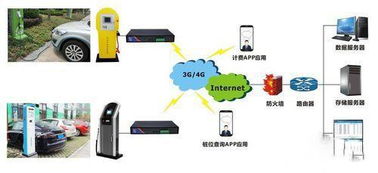新能源车控制器上市公司
Title: Exploring the Landscape of New Energy Vehicle Control Systems Enterprises
In recent years, the rapid advancement of electric vehicles (EVs) and hybrid vehicles has led to a burgeoning market for new energy vehicle (NEV) control systems. These systems encompass a wide array of technologies and components crucial for the efficient operation and management of electric and hybrid vehicles. Let's delve into the landscape of enterprises involved in developing NEV control systems.
Understanding NEV Control Systems
NEV control systems are pivotal in governing various aspects of electric and hybrid vehicles, including:
1.
Powertrain Management
: Controlling the flow of energy between the battery, motor, and other power sources.2.
Battery Management Systems (BMS)
: Monitoring battery health, managing charging and discharging processes, and ensuring safety.3.
Vehicle Control Units (VCUs)
: Overseeing overall vehicle operation, including traction control, regenerative braking, and thermal management.4.
Charging Infrastructure Integration
: Developing systems to facilitate efficient charging, both at home and in public charging stations.Key Players in the Industry
1.
Tesla
: Renowned for its cuttingedge electric vehicles, Tesla not only excels in vehicle manufacturing but also in developing sophisticated control systems inhouse. Their proprietary technology encompasses powertrain control, battery management, and advanced driverassistance systems (ADAS).2.
Bosch
: A global leader in automotive technology, Bosch offers a comprehensive suite of NEV control solutions, including powertrain management, BMS, and VCU. Their expertise spans both hardware and software development, catering to diverse vehicle platforms.3.
Continental
: Another major player in the automotive industry, Continental specializes in providing integrated NEV control systems. Their offerings include innovative solutions for power electronics, BMS, and vehicle connectivity, aimed at enhancing performance and efficiency.4.
NVIDIA
: While primarily recognized for its contributions to the semiconductor industry, NVIDIA has ventured into the realm of NEV control systems through its DRIVE platform. Leveraging advanced AI and deep learning capabilities, NVIDIA aims to revolutionize autonomous driving and vehicle control.5.
LG Chem
: Focusing on battery technology, LG Chem is a prominent supplier of lithiumion batteries for electric vehicles. In addition to producing highquality battery cells, they develop BMS solutions tailored to optimize battery performance and longevity.Emerging Trends and Challenges
1.
Autonomous Driving Integration
: As the automotive industry moves towards autonomous driving, there's a growing demand for control systems capable of supporting advanced driverassistance features and selfdriving capabilities.2.
Enhanced Connectivity
: With the rise of connected vehicles, NEV control systems are expected to seamlessly integrate with external networks, enabling features such as overtheair updates, remote diagnostics, and vehicletogrid communication.
3.
Standardization and Interoperability
: Ensuring compatibility and interoperability among different components and systems remains a significant challenge. Standardization efforts are essential to promote uniformity and facilitate seamless integration across various vehicle platforms.4.
Safety and Cybersecurity
: As vehicles become more reliant on electronic control systems, ensuring cybersecurity and safeguarding against potential cyber threats is paramount. Robust security measures must be implemented to protect against unauthorized access and malicious attacks.Conclusion
The landscape of enterprises involved in developing NEV control systems is diverse and dynamic, reflecting the rapid evolution of electric and hybrid vehicles. From established automotive giants to innovative tech firms, numerous players contribute to shaping the future of sustainable mobility. As technological advancements continue to unfold, collaboration and innovation will be key in driving the widespread adoption of new energy vehicles and accelerating the transition towards a greener transportation ecosystem.
版权声明
本文仅代表作者观点,不代表百度立场。
本文系作者授权百度百家发表,未经许可,不得转载。

















评论